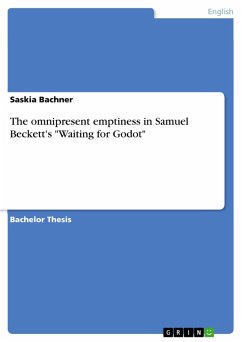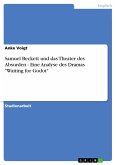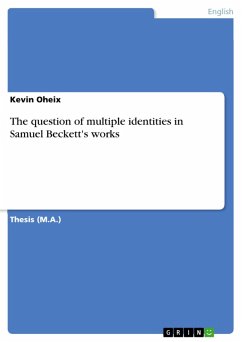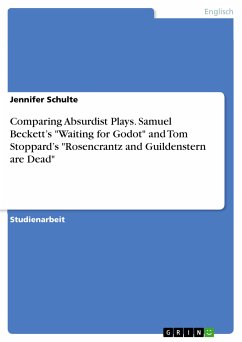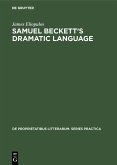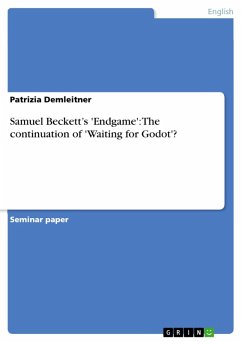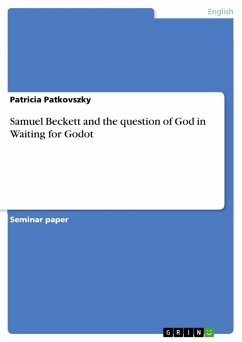Bachelor Thesis from the year 2008 in the subject English Language and Literature Studies - Literature, grade: 1,6, University of Mannheim, language: English, abstract: Incomprehension and confusion are common reactions to the plays of Samuel Beckett. The effort of the audience to extract an overall meaning from the plot mostly fails. This is due to the fact that on the stage, all concepts on which we usually rely collapse; they lose their meaning. Among them are for instance "the belief in God, in the unity of the world, [and] in the knowability of experience" (Connor, 3). The audience is no longer able to revert to familiar experiences in order to establish an interpretation. The result is inner emptiness. According to Beckett and the other writers of the so-called Theatre of the Absurd, inner emptiness is a basic experience of everyday life. Against the background of the events of the Second World War, they believe that our world is characterised by dissolution (cf. Esslin 1991, 43). The concepts in which we believe have merely become illusions. We cling to them in order to avoid the truth: we are left alone in an empty world. Beckett shares this opinion with several philosophical areas. Nevertheless, he is clearly no philosopher. Beckett himself emphasises that "he never understood the distinction between being and existence" (P. J. Murphy quoted in Barfield, 155). However, this does not seem to be entirely true since he includes these terms as well as the philosophical problem of the inner emptiness in his work. Yet, unlike Sartre and Camus, Beckett does not present a solution to this problem (cf. Cormier & Pallister, 3f). Nonetheless, Martin Esslin states that philosophical problems are in general better expressed by the plays of the Theatre of the Absurd than by the plays or novels of Sartre and Camus. In contrast to the latter, the Theatre of the Absurd does not only illustrate emptiness in the content of the plot, but also in the form of the play itself, which differs considerably from all theatrical conventions (cf. Esslin 1968, 24).
Dieser Download kann aus rechtlichen Gründen nur mit Rechnungsadresse in A, B, BG, CY, CZ, D, DK, EW, E, FIN, F, GR, HR, H, IRL, I, LT, L, LR, M, NL, PL, P, R, S, SLO, SK ausgeliefert werden.

